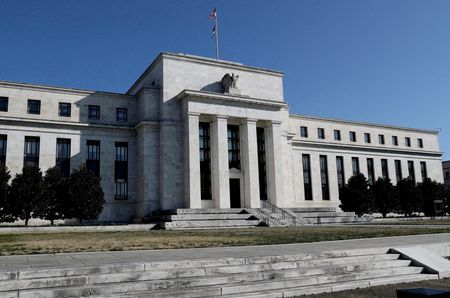 1
1 1
1
By Michael S. Derby
NEW YORK (Reuters) – Boston Federal Reserve President Susan Collins said on Thursday the time may be at hand for the U.S. central bank to push the pause button on its interest rate hiking campaign to see how the impact of past tightening is weighing on activity.
“While inflation is still too high, there are some promising signs of moderation,” Collins told a gathering at the Community College of Rhode Island. And while the Fed should remain “resolute” in lowering inflation, the cooling in price pressures means that “we may be at, or near, the point where monetary policy can pause raising interest rates.”
Potentially holding off on a rate hike “will provide an opportunity to more fully assess the impact of the actions taken to date and the general tightening of credit conditions on economic activity,” she said.
Collins, who does not have a vote this year on the rate-setting Federal Open Market Committee, weighed in ahead of the June 13-14 monetary policy meeting. The Fed has raised rates aggressively since March of 2022 to tamp down on high levels of inflation and has lifted its interest rate target from the near-zero level to the current 5.00%-5.25% range.
A number of Fed officials have suggested, in a view similar to Collins, that abating inflation coupled with the restraint created by banking sector difficulties could give them space to hold off on another rate increase next month, although most have also kept the option to act if needed.
“I also believe it is important to make each policy decision based on a holistic assessment of information available at the time – and the next policy meeting will be in mid-June,” Collins said. “In the meantime, we continue to monitor a wide range of data – about price developments, labor markets, financial conditions and more – to evaluate how the economy is doing,” she said.
Collins also said her baseline outlook for the economy assumes the Fed will get inflation back to target and said: “I think we can get there without a significant downturn.” But she added it’s possible there will be a rise in unemployment.
(Reporting by Michael S. Derby; Editing by Paul Simao)